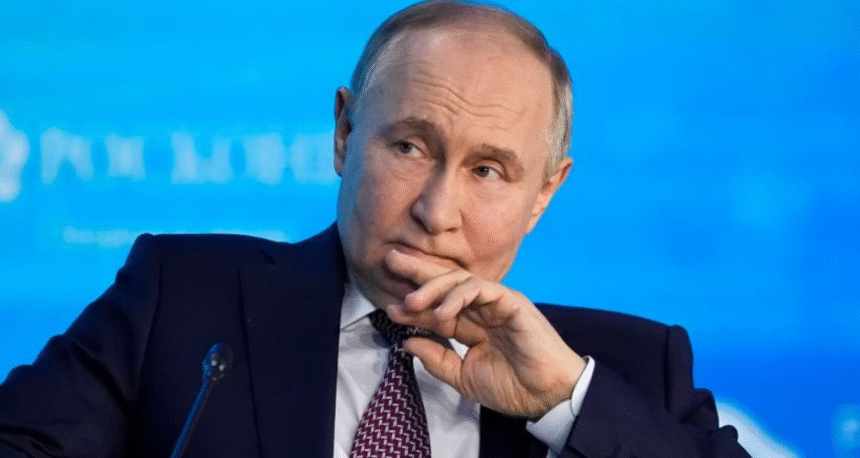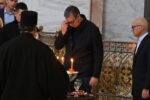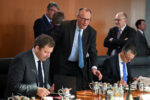Russian president Vladimir Putin has ordered his government and military to prepare for potential nuclear weapons testing, in a direct response to Donald Trump’s announcement that the United States will break its 30-year moratorium on nuclear testing.
In a statement released on Wednesday, Putin instructed the Foreign Ministry, Defence Ministry, intelligence services, and civilian agencies to “collect information, analyze it at the Security Council, and make agreed proposals on the possible start of work on the preparation of nuclear weapons tests.”
The move follows Trump’s declaration last week that the U.S. will resume nuclear tests for the first time since the 1990s, claiming—without providing evidence—that Russia, China, and North Korea were secretly conducting their own tests.
Escalating Global Tensions
Putin’s order marks the most serious escalation in the global nuclear standoff since the end of the Cold War. Russian defence minister Andrei Belousov told Putin that recent U.S. actions made it “advisable to prepare for full-scale nuclear tests immediately.”
Officials said Russia’s Arctic testing site at Novaya Zemlya could host such trials “at short notice.”
General Valery Gerasimov, Russia’s Chief of the General Staff, warned that if Moscow failed to act now, it could “lose time and opportunities for a timely response.”
No country except North Korea has carried out an explosive nuclear weapons test in the 21st century. Experts fear that resuming testing by either Russia or the U.S. could trigger a dangerous global chain reaction, prompting other nuclear-armed states to follow.
“Action-reaction cycle at its best. No one needs this, but we might get there regardless,” warned Andrey Baklitskiy, a senior researcher at the UN Institute for Disarmament Research.
Growing Instability Across Europe
The order came as Russia intensified its war in Ukraine, claiming advances in Pokrovsk, while Ukraine’s forces fight to prevent encirclement. Meanwhile, Putin signed a new law deploying two million reservists to guard Russia’s oil refineries from Ukrainian drone attacks, as strikes deep inside Russian territory continue to embarrass the Kremlin.
In Eastern Europe, regional governments are reacting to Moscow’s aggression. Bulgaria has drafted legislation to seize control of Russia’s Lukoil refinery in Burgas, while Poland is in talks to import more U.S. liquefied natural gas (LNG) to supply Ukraine and Slovakia, tightening European energy security cooperation.
Analysis: The End of Restraint
Security analysts warn that the collapse of nuclear restraint could usher in a new era of arms competition unseen since the 1980s.
“Putin and Trump appear locked in a political show of strength that risks undermining decades of non-proliferation progress,” said one Western defence expert.
With both Moscow and Washington moving toward rearmament, and the Ukraine war intensifying, the prospect of a renewed global arms race has become alarmingly real.







